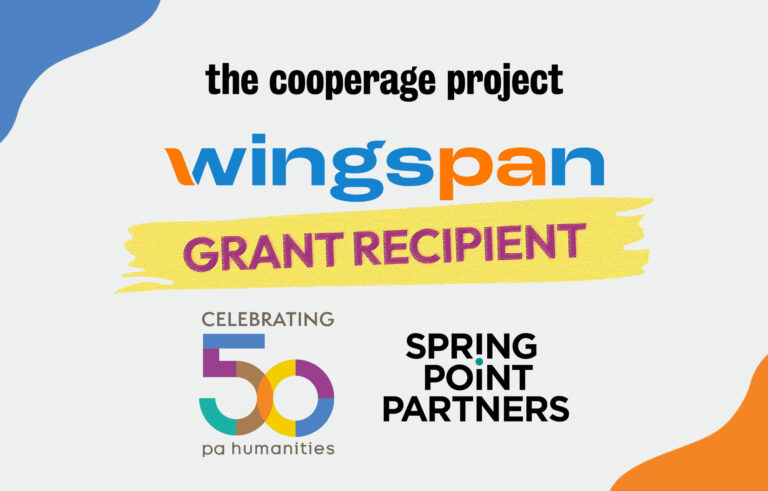News/Updates
Wingspan Grant

The Cooperage Project is proud to announce that it is among the 24 distinguished recipients of a Wingspan grant. This major initiative by PA Humanities is part of its ongoing 50th anniversary celebration. The grant aims to help BIPOC (Black, Indigenous, and People of Color) and rural organizations committed to community-based humanities work soar by providing financial support, amplifying their voices, and cultivating new space for creativity and connection.
As a Wingspan recipient, The Cooperage Project is set to receive $100,000 over the next two years, which will be instrumental in building their capacity to meet community needs, such as exploratory performance-based programs and programs like their community conversations series, which fosters dialogue on human-centered topics. This funding will enable them to further their mission to invite all to embrace diversity and celebrate shared experiences in order to create a deeper sense of community.
In addition to financial support, The Cooperage Project will join the Wingspan Learning Community composed of 24 grantees in two special learning cohorts (BIPOC and rural). Kicking off in January 2024, they will meet regularly to discuss topics like equitable access to the humanities, building belonging for new audiences, navigating the challenges of leadership, and how cultural work can provide spaces for residents to explore and better understand our ever-changing world.
“Sense of place is important to any community, and applying humanities methods to our work at The Cooperage Project helps us celebrate our community’s shared local heritage and pride, and invites neighbors to contribute in unique and personal ways. The Wingspan grant and our participation in the Learning Community will help us as we strive to continue to make critical connections and build relationships that make our whole community more resilient,” said Arrah Fisher, executive director of The Cooperage Project.
Funding for Wingspan is made possible with the generous support from Spring Point Partners, and additional funding from PA Humanities, individual donors and the National Endowment for the Humanities (NEH).



